Hydrolyzed Soy Protein: A Natural Boost for Health and Beauty
As consumers, we’re always on the lookout for ingredients that offer multiple benefits, are sustainably sourced, and support our health. Hydrolyzed soy protein checks all these boxes, offering impressive advantages across beauty, health, and nutrition industries. Let’s explore how this powerhouse ingredient works and why it’s worth integrating into your lifestyle.
What is Hydrolyzed Soy Protein?
Hydrolyzed soy protein is a plant-derived protein from soybeans, broken down through a process called hydrolysis. During this process, protein bonds are split, allowing the body to absorb it more easily. This enhanced bioavailability makes hydrolyzed soy protein a leading choice for products that require quick absorption and efficacy, particularly in skincare, haircare, and sports nutrition.
According to the Commission of the European Union, it is obtained by acidic, alkaline, or enzymatic hydrolysis of soya composed primarily of amino acids, peptides, and proteins. It may contain impurities consisting chiefly of carbohydrates and lipids along with smaller quantities of miscellaneous organic substances of biological origin.
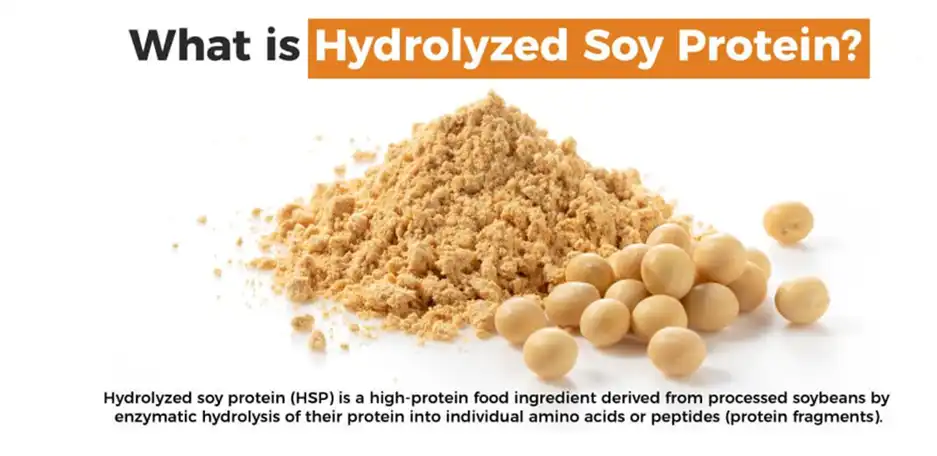
Production Process: From Soybean to Hydrolyzed Protein
The journey from soybean to hydrolyzed soy protein involves several steps:
Extraction: Soy protein is extracted from the ground soybeans, separating it from the fats, carbohydrates, and fibers.
Hydrolysis: The extracted soy protein undergoes hydrolysis, breaking down the protein structure into smaller components.
Purification: The hydrolyzed protein is then purified to remove any non-protein elements, resulting in a concentrated protein product.
This process not only alters the protein’s structure but also its functionality and how it’s used in various industries.
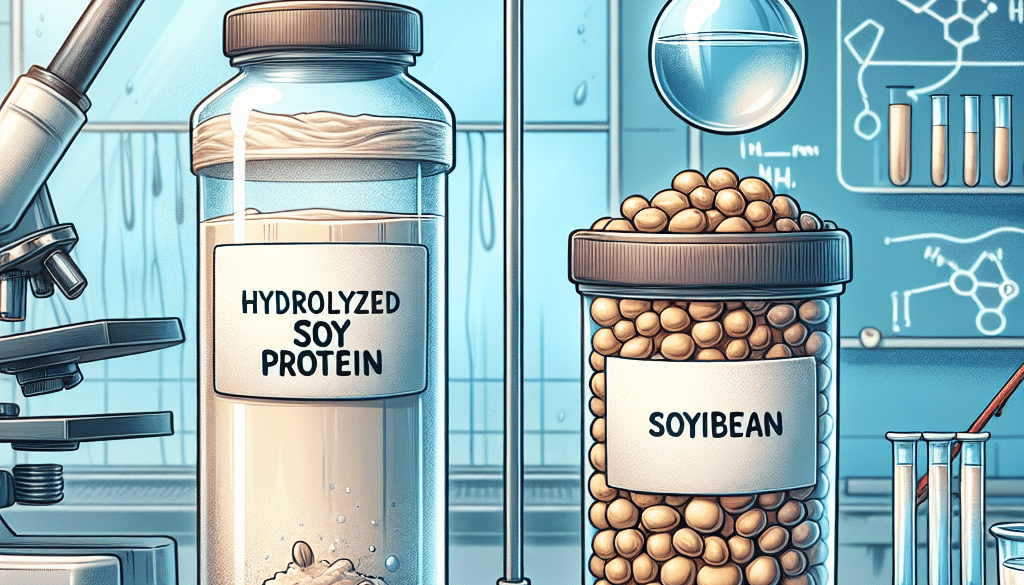
Nutritional Comparison: Hydrolyzed Soy Protein vs. Soybean
While both hydrolyzed soy protein and whole soybeans are derived from the same plant, their nutritional profiles differ significantly:
Protein Content: Hydrolyzed soy protein is almost pure protein, whereas whole soybeans contain protein along with carbohydrates, fats, and fiber.
Amino Acid Profile: Both contain all essential amino acids, but hydrolyzed soy protein may have a higher concentration due to the removal of other macronutrients.
Other Nutrients: Whole soybeans offer additional nutrients like omega-3 fatty acids, vitamins, and minerals that may be reduced or absent in hydrolyzed soy protein.
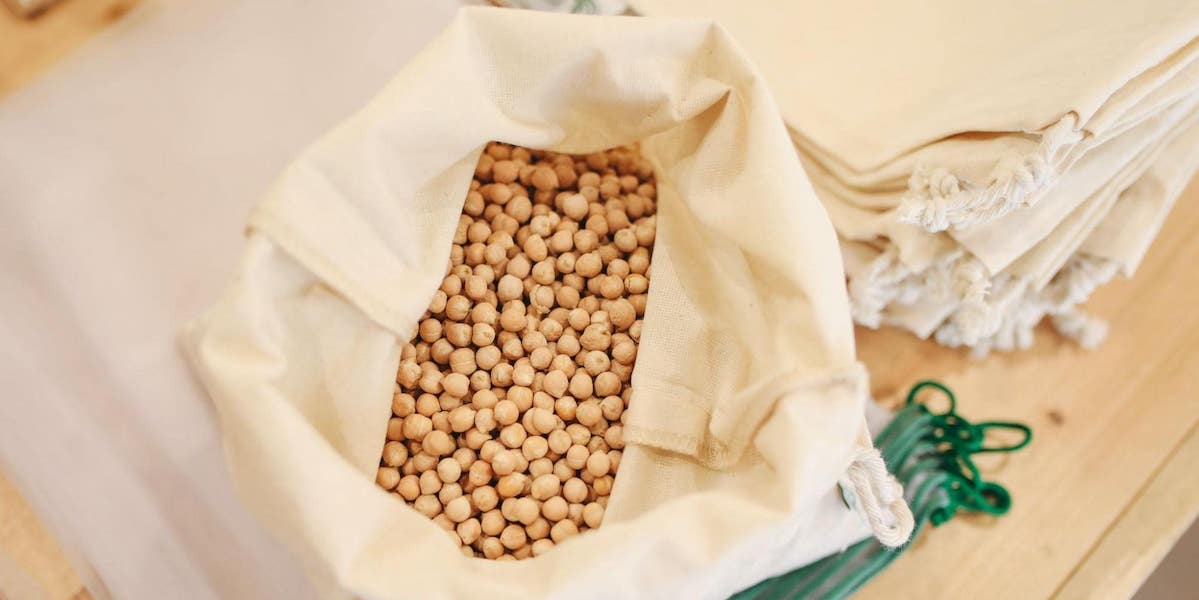
The Health Benefits of Hydrolyzed Soy Protein
1. Rich in Essential Amino Acids: Amino acids are the building blocks of proteins, crucial for body functions like tissue repair and immune response. Hydrolyzed soy protein contains all nine essential amino acids, supporting muscle growth, maintaining bone density, and even boosting cognitive function.
2. Heart Health Support: Soy protein is naturally low in cholesterol and saturated fat, which contributes to cardiovascular health. Studies show that it can help lower LDL (bad) cholesterol levels while maintaining HDL (good) cholesterol. For those with a history of heart disease or those aiming to prevent it, hydrolyzed soy protein is an excellent, heart-friendly alternative to animal proteins.
3. Aiding Muscle Recovery and Growth: Because it is easily absorbed, hydrolyzed soy protein is popular in post-workout products. It helps repair muscle tissues more rapidly, minimizing downtime between workouts and reducing soreness.
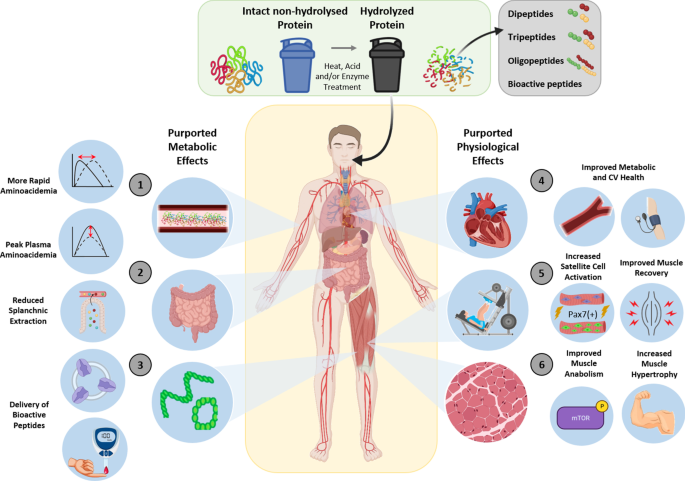
Uses of Hydrolyzed Soy Protein
Hydrolyzed Soy Protein (HSP) is a food additive used in many processed products, including meat products, soups, gravies, sauces, baked goods, desserts, snack foods, candy bars, chewing gum, and beverages. This additive can be found in many products containing soy protein or protein derived from soybeans.
The term“hydrolyzed” refers to its chemical reaction with water to release small amounts of amino acids from its original structure. These hydrolyzed proteins are often used because they have a lower cost than whole proteins due to their ease of manufacture during processing. Hydrolyzed soy protein is also used in many types of food products, like salad dressings, dips, and sauces. It can be found in canned beans, tofu, and many other types of foods.
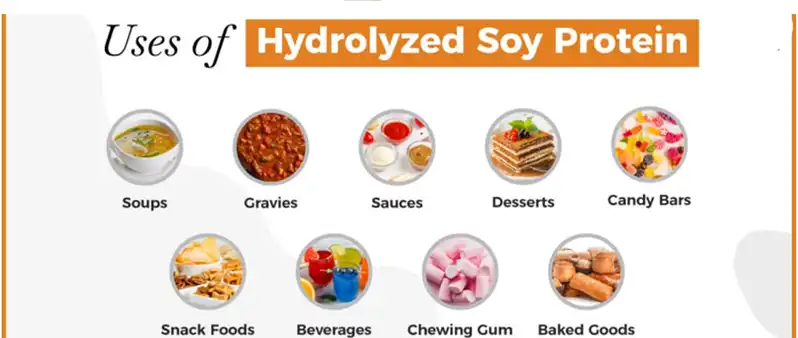
The FDA has approved hydrolyzed soy protein as a food ingredient. However, no studies are proving that hydrolyzed soy protein has any health benefits over other types of protein powder or meal replacement shakes.
Hydrolyzed soy protein is derived from a process that breaks down soy protein into its amino acids.
The hydrolyzed soy protein in this product is derived from soybean. It has been processed using an enzymatic process that changes the structure of the protein without destroying its nutritional value.
The Hair and Skin Care Wonders of Hydrolyzed Soy Protein
From cleaning and moisturising to the covering up of blemishes and the treatment of minor skin conditions, the range of applications for which plants were of use in cosmetics ingredients became apparent at an early stage of civilisation.
The most frequently mentioned use in cosmetic products, out of all the soy proteins, is hydrolyzed soy protein. Up to 1.5% of it is present in detergents and bath soaps. Soy ingredients in cosmetics have been shown in research appearing in the February 2015 issue of Acta Poloniae Pharmaceutica to stimulate collagen, offer anti-inflammatory benefits, and even offer UV protection. Additionally, soy derivatives are used in exfoliating face washes that use soy microbeads rather than plastic microbeads because they are more environmentally friendly. Hydrolyzed soy protein for hair care - It works as an antistatic and a hair conditioning agent in hair care products.
Promoting Skin Health: Its ability to retain moisture makes hydrolyzed soy protein an essential component in skincare formulations. It helps lock in hydration, improving skin elasticity and reducing the appearance of fine lines. With regular use, skincare products with hydrolyzed soy protein can make skin look plumper, firmer, and more youthful.
Revitalizing Hair: For hair, hydrolyzed soy protein strengthens strands, improves elasticity, and adds natural shine. It’s also known to reduce frizz and help retain moisture in hair shafts, making hair more resilient and vibrant. This ingredient is particularly beneficial for chemically treated or damaged hair, restoring natural beauty with every use.
Today, the safe use of soy proteins and peptides has been established across a wealth of the most luxurious and sophisticated contemporary cosmetics and personal care products. Such offerings encompass not only body, hand, face and neck products but also those for the hair, among their number conditioners, dyes, colours and shampoos. When hydrolysed soy protein is produced by way of the enzymatic hydrolysis of soya flour, users can revel in an ingredient that enhances their hair’s gloss, texture, moisture retention, manageability and body.
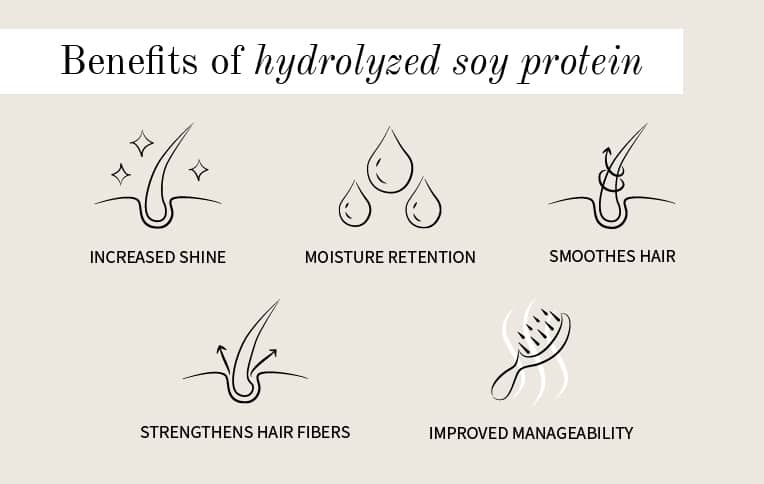
Hydrolyzed Soy Protein Nutrition
According to the American Cancer Society, soy-based products such as hydrolyzed soy protein serve as an appropriate replacement to meat thanks to their high protein content. A 100-gram serving of Bob's Red Mill Natural Foods organic textured soy protein has 588 calories, which is much higher than a 100-gram serving of lean, grass-fed beef strip steaks, which contain just 117 calories.
A serving of textured hydrolyzed soy protein is also higher in protein compared to beef, which offers 23.70 grams of protein. Textured soy protein, on the other hand, provides 52.94 grams of protein, 11.76 grams of fat, 35.29 grams of carbohydrates and 23.5 grams of total dietary fiber.
The Dietitians of Canada states that hydrolyzed soy protein is also high in calcium, which is required to maintain a healthy skeletal system. A 100-gram serving offers 353 milligrams of calcium and 10.59 milligrams of iron, a mineral responsible for oxygenation of body cells. They are good sources of isoflavones, a type of phytoestrogen whose efficacy increases on digestion.
Hydrolyzed Soy Protein Safety profile
The Cosmetic Ingredient Review (CIR) Expert Panel (Panel) reviewed relevant data related to hydrolyzed soy protein and concluded that soy proteins and peptides are safe in cosmetics in the present practices of use and concentration. The Panel utilized data received from the Food and Drugs Administration (FDA) and the cosmetics industry. The soy peptide ingredients in this report are not restricted from use in any way under the rules governing cosmetic products in the European Union.
Sustainable and Plant-Based
Hydrolyzed soy protein is vegan and eco-friendly, unlike many animal-derived proteins. Soybean farming has a relatively low environmental impact, and the hydrolysis process further minimizes waste and conserves resources, aligning well with sustainable and cruelty-free beauty and wellness industries.
Why Choose Yangge Biotech Hydrolyzed Soy Protein for Your Product?
We at Yangge Biotech produce Hydrolyzed Soy protein from non-GMO soybeans, which are offered in various concentrations and formulations to suit multiple product requirements. Adding Titan Biotech’s soy protein to your product could provide several advantages, such as:
Better nutritional profile: Soy protein is a top-notch protein source that can raise your food’s nutritional value.
Plant-based and vegan-friendly: Soy protein is a plant-based protein source ideal for consumers who eat a vegan or vegetarian diet. It is also suitable for those who are vegetarians.
Allergen-friendly: It is safe for people with allergies or intolerances to use soy protein because it is free of several common allergens like dairy, gluten, and nuts.
Functionality: The emulsification and foaming abilities of soy protein can enhance the mouthfeel and texture of foods.
Wrapping up, Hydrolyzed soy protein is a Versatile Ingredient for Multiple Needs that adapts to our evolving health, wellness, and beauty needs. Its plant-based origin makes it a preferred choice for those with dietary restrictions or anyone aiming for a more sustainable lifestyle. Additionally, it’s a gluten-free, allergen-friendly option for those sensitive to wheat or dairy.
Where to Buy Hydrolyzed soy protein?
Discover the exceptional quality of Hydrolyzed soy protein from YANGGE BIOTECH INGREDIENTS, available with a complimentary sample at yanggebiotech.com. Renowned as an industry leader, YANGGE BIOTECH is dedicated to manufacturing and distributing premium-grade dietary supplement ingredients, delivering purity and potency with every product.
Not only does YANGGE BIOTECH serve health-conscious consumers directly, but it also partners with top brands across the food and supplement sectors, supplying raw, pure ingredients that meet the highest industry standards. Elevate your product offerings or personal wellness with our trusted ingredients—reach out to us today to place your order and experience the YANGGE difference.
References:
https://www.sciencedirect.com/science/article/pii/S0022030295766292
https://link.springer.com/article/10.1007/s11743-998-0026-2
https://www.sciencedirect.com/science/article/abs/pii/S0308814621009328
https://pubs.acs.org/doi/pdf/10.1021/jf60208a021
Send Inquiry
Related Industry Knowledge
- Activated Charcoal Benefits for Stomach
- Hydrolysed Marine Collagen Powder and Capsule
- Sea Moss Benefits for Men
- Organic Moringa Powder Nutrition and Health Benefits
- Glutathione Tablets: Health Benefits
- Magnesium Complex Supplement: Protein and Glycinate
- benefits of tongkat ali for women
- Does oat beta-glucan reduce cholesterol?
- Does oat protein build muscle?
- Potato Protein Powder: Nutrition Facts and Health Benefits



